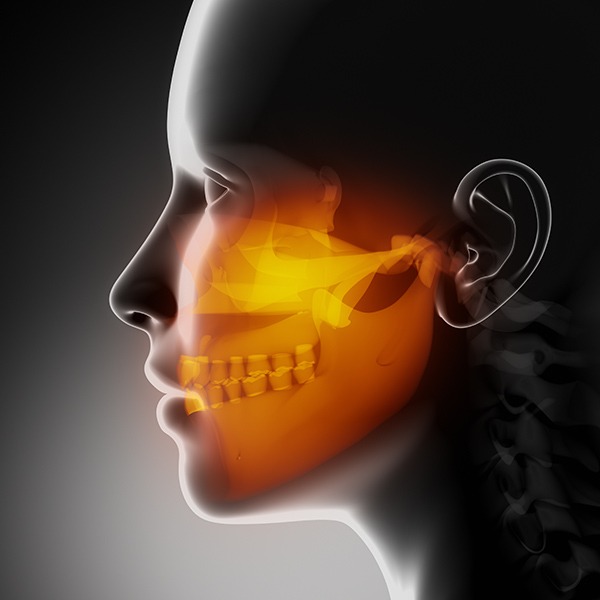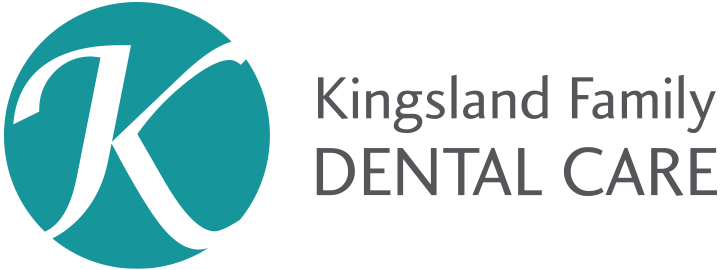What is TMJ?
TMJ or Temporomandibular Joint Dysfunction is an umbrella term that covers pain and dysfunction of the muscles involved with chewing and the temporomandibular joints (TMJ). TMJ can eventually lead to an imbalance in the relationship of the upper jaw to the lower jaw. This will result in an unnatural, strained position for the muscles of the jaw. The muscles do not like this strained position. As such they will compensate by constantly contracting. This will also cause muscle spasms, pain, and soreness. As they fatigue, there is a buildup of lactic acid and other waste metabolites. These waste products are what cause spasms and discomfort. At some point, the body tries to flush out the muscles with increased blood flow, which results in a pounding headache. Muscles work together as a team. When the jaw muscles, which are involved with chewing, biting, talking, breathing, and head posture are overused, they recruit muscles of the neck, shoulder, and back. The tight, painful, contracted muscles of the jaw result in pain in the muscles of the neck, shoulder, and back. Not all of our patients experience these symptoms, nor do we claim to be treating them. However, many patients are happy when these symptoms are relieved with neuromuscular treatment.
Treating TMJ Dysfunction
Using neuromuscular dentistry, we determine if the symptoms you are experiencing are the result of a bad bite. We then go through a series of steps to not only relieve your symptoms but also correct the cause of your symptoms.
Treatment usually begins with the relief of muscle spasms and the associated pain. We use a unit called a Myo-monitor which helps to relax the patient’s muscles. The Myo-monitor stimulates the Trigeminal Nerve and The Facial nerve using a very mild electrical impulse. After TENSing there is much less activity and the muscles are relaxed.

You NEED a Comfortable Bite
After the muscles are relaxed, we begin the next phase of treatment which is bite stabilization. We create a temporary appliance, known as an orthotic or splint, which is worn over the teeth. The splint keeps the muscles in the “happy” position which was established with the use of the Tens unit.
Once you are stable, we can move on to the next step, which involves correcting the bite to keep the jaws in this comfortable position. Sometimes it is possible to use orthodontic treatment to move the teeth into a position that is comfortable for the muscles.

Signs of Bruxism
If you suffer from bruxism, you may experience headaches, TMJ (jaw) pain, earaches, sensitive teeth, chipped teeth, broken fillings, eroded gums, and the eventual loss of supporting bone.
After an extensive examination and patient history, we will formulate a plan that is aimed to help resolve bruxism issues. Our office can help to evaluate your symptoms, devise a treatment plan, and work with you to relieve the discomfort of bruxism.
Treating TMJ Related Bruxism
Did you know that 15% of the population will clench or grind their teeth at night? This condition—called bruxism—often goes undetected until a family member hears grinding sounds when you are sleeping, or your dentist notices the signs of bruxism. Bruxism is very damaging to your TMJ (Jaw). When diagnosed early, bruxism may be treated with a simple appliance called a Night Guard, before it causes significant damage to the teeth.
What Are My Options?
At Kingsland Family Dental Care, we recommend custom Mouth Guard. Custom Night Guards are made to precisely fit your teeth making them the most comfortable option for sleeping.
- To care for your Night Guard is simple, by following these easy steps:
- Ensure your Night Guard is clean before and after each use by using cold water and a toothbrush to remove any build-up.
- Store your Night Guard in the case provided. It is important to use a firm, perforated container to allow air to circulate and to prevent damage.
- Keep your Night Guard away from hot temperatures, such as hot water, direct sunlight, direct heat surfaces to minimize distortion of its shape.
- You will notice your Night Guard develop general wear throughout its use because the Night Guard is protecting the teeth from damage. If you see any holes or if it becomes uncomfortable to wear, contact our office.
- Bring your Night Guard to each regularly scheduled dental visit to ensure it is in good condition and functioning as intended.
To learn more about bruxism, please contact us at (403) 255-1591
to schedule your meet and greet with Dr. Alissa Khartchenko!
